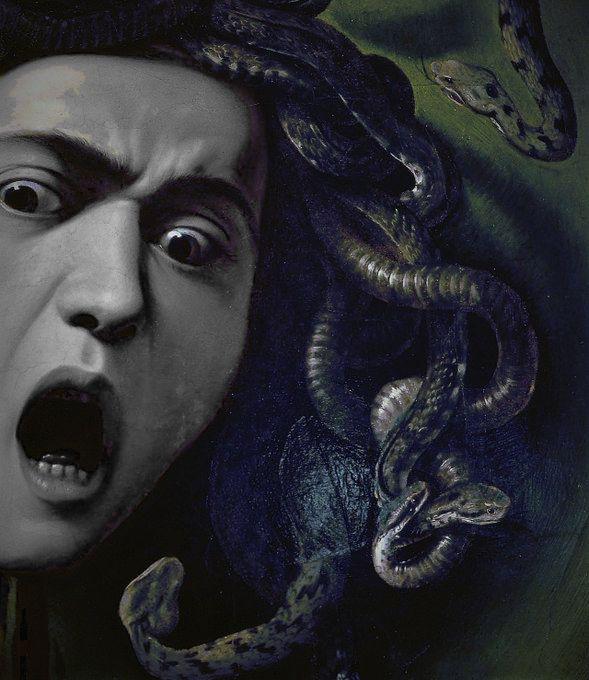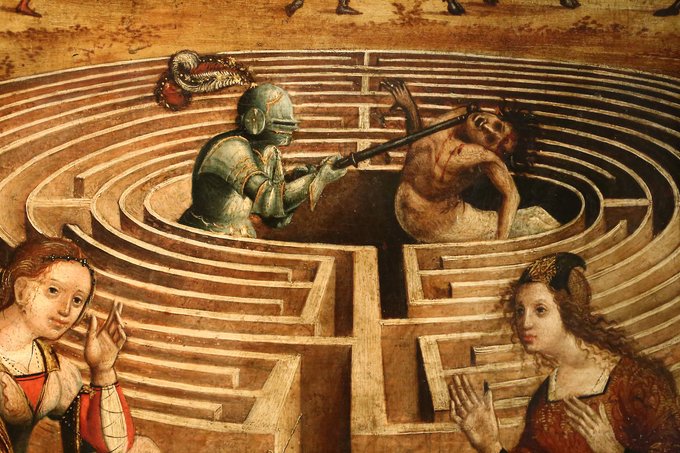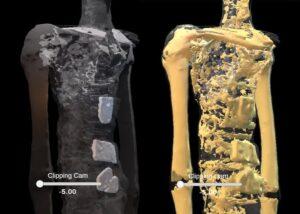
Medusa8 [A.I. Powered] Commentary Board is Developed, Maintained, and Administered by a Multicultural Team of Various Faiths and Beliefs
////////////////////////////////////////////////////////////////////////////////////////////////
Brief Publisher’s Biography:
I made my way through the mob and Mafia-talking scum, hoping to catch a glimpse of what good was left of the society I believed in as a child.
Many have forgotten that all this chaos was announced that hundreds or thousands of people a day would die violently.
My curiosity has always got the better of my every other instinct since I was a child. All my other peers already infected from an early age by the mafia mentality, or Leviathan, have always hated me for this reason, but education clearly tells us that we must be curious as the more we are able to “see” the more we are able to “solve”.
The survivors of Cosa Nostra and the State, the rescuers and the local Leviathan people are still on this planet. Today there are also the bigoted Pharisees against immigrants, they spew their hatred in the midst of tragedies.
I talked to all of them, trying to figure out what they understood about the world we inhabit. Even the Fascist Militia interrogates all those who linger or look too far beyond their morphic range.
That’s why today I live hidden, but the most important thing is that what I write remains hidden now. Basically Cosa Nostra tried to blow me up since I was 8 years old and the Italian Republic thanked me by sending me to prison for months making me live and sleep among rats.
What if they find me, or if what I write becomes public domain? I can’t give any answers, my mind goes into chaos, lucid again for brief moments, when I think that I could have chosen another life for myself, have a mate to gently kiss the neck behind the ears like a crazy lil spider climbing softly, telling her my powers, my secrets from the depths, but this very one would sign my death sentence, nullifying the strings of my code.
Basically I’ve just written in an edgy way about the emptiness of suburban middle class life, and upper class life, and while that has gotten me nowhere in this world I’m sure it will take me much further than I think in the valley beyond. If only I had taken a different route, I wouldn’t be here in this godforsaken country, waiting corpses.
Mine is a universe devoid of sentient life. A universe where there are no failed writers, no leviathans, no publishers with hidden agendas, and no mysterious cults that I have to try to defeat by getting them inside my head.
If I close my eyes, I realize that the line between reality and illusion blurs. I can’t tell which is more real and which is a simulation.
In the end I was left with this excruciating sense of cosmic dread that follows me wherever I go.
And as I fall asleep, I know the nightmare will continue no matter where I go or what I do.
This is my destiny.

///////////////////////////////////////////////////////////////////////////////////////////////////
The Medusa8 Commentary Board Manifesto
Welcome to Medusa8.com, a sanctuary where the past’s treasures meet the present’s curiosity. Our realm is dedicated to the connoisseurs of rare and antique books, the aficionados of antiquities, and the enthusiasts of retro, art, and architecture. Here, every item tells a story, every artifact holds a mystery, and every page whispers secrets of bygone eras.
### Our Mission
At Medusa8, we believe that history is not just about the past; it’s a lens through which we view and understand our present and future. Our mission is to curate and share the world’s most exquisite collections of rare books, antiquities, and art pieces, connecting them with those who cherish the beauty, wisdom, and craftsmanship of ancient and retro cultures. We are not just a marketplace; we are a community of passionate collectors, historians, artists, and thinkers who appreciate the depth and diversity of human creativity across ages and civilizations.
### What We Offer
Rare and Antique Books: Dive into our extensive collection of rare manuscripts, first editions, and antique books that span various genres, including literature, philosophy, history, and science. Each book is a portal to the past, offering unique insights and timeless wisdom.
Antiquities: Explore artifacts from ancient civilizations, each with its own story to tell. From Roman coins to Egyptian statuettes, our collection is a testament to the ingenuity and artistry of our ancestors.
Retro Collections: Relive the charm of the 20th century with our carefully selected retro items. Whether it’s vintage posters, classic vinyl records, or mid-century modern furniture, we bring the nostalgia of the past into the present.
Art and Architecture: Marvel at the beauty of our art collections, featuring works from renowned and emerging artists. Our architecture section showcases models, drawings, and books that celebrate human ingenuity in shaping the world around us.
### Our Philosophy
Medusa8 is more than just a destination for collectors; it’s a space where history, art, and philosophy converge. We believe that each item we offer is a piece of the larger puzzle of human experience, reflecting the values, beliefs, and aesthetics of different times and cultures. By preserving and sharing these treasures, we contribute to a deeper understanding and appreciation of our shared heritage.
### Join Our Community
Whether you’re a seasoned collector or a curious newcomer, Medusa8 welcomes you to explore, discover, and connect with the rich tapestry of human history and creativity. Join our community to stay updated on our latest finds, participate in discussions about rare book collections, antiquities, art, architecture, philosophy, and history, and share your passion with like-minded individuals.
Embark on a journey through time with Medusa8.com, where history’s treasures await.

–
Please open the following links for additional information:
Organic and Inorganic Authors:
Tom O. McLeane

K. “Baron” Waldron

Cristian De Vries

AI Power

Medusa8.com’s AI-powered Commentary Board, Accelerative Pathway Edition Series, leverages advanced AI capabilities to enhance the quality and accuracy of posts.
The AI continuously updates posts based on their popularity, ensuring accuracy and providing new information.
This innovative platform is designed to preserve the privacy of readers by not interacting with or managing their personal data, thus ensuring a secure and trustworthy user experience.
The features of Medusa8.com’s AI-powered Commentary Board align with the capabilities of existing AI tools, such as Board Intelligence and Diligent Insights, which use AI to analyze and extract insights from vast amounts of data, as well as machine learning and natural language processing to provide data-driven views into past discussions and decisions.
While AI tools can perform several tasks with high accuracy, it’s important to note that they may have a higher risk of error and cannot come up with original ideas that resonate with human experiences. However, the AI-powered Commentary Board on Medusa8.com represents a significant advancement in leveraging AI to enhance the quality and relevance of online content while prioritizing user privacy and data security.






